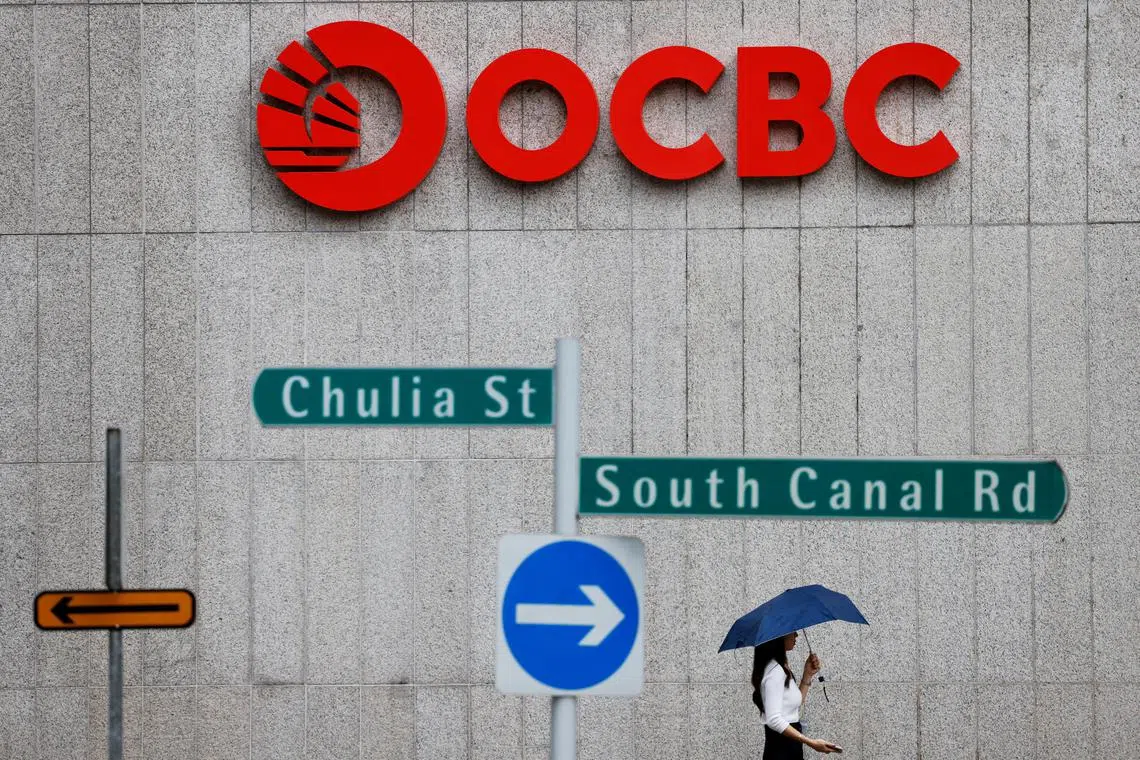‘No intention’ to convert Great Eastern Class C non-voting shares to ordinary ones in 5 years: OCBC
Sign up now: Get ST's newsletters delivered to your inbox

Early in June, OCBC made a conditional exit offer at $30.15 per share for the 6.28 per cent stake in Great Eastern it does not own.
PHOTO: REUTERS
SINGAPORE – OCBC Bank said it has “no intention” to convert its Class C non-voting shares in Great Eastern to ordinary shares when they come up for conversion in five years.
In a statement on June 23, the lender said it does not intend to convert the Class C shares “on or after the fifth anniversary of the first issuance” as it would result in Great Eastern losing its free float again.
“OCBC is electing for the Class C non-voting shares at Great Eastern’s request to help Great Eastern to meet the free-float requirement and the resumption of trading,” it said.
The statement was made in response to media reports about how OCBC can still propose the privatisation and delisting of Great Eastern by converting these non-voting shares to ordinary voting shares.
Early in June, OCBC made a conditional exit offer at $30.15 per share for the 6.28 per cent stake in Great Eastern it does not own, in a bid to delist the insurer amid the latter’s trading suspension.
The offer is conditional upon 75 per cent of Great Eastern’s remaining shareholders voting in favour of a delisting. OCBC will not be able to vote.
If the delisting resolution fails at the insurer’s extraordinary general meeting (EGM) on July 8, Great Eastern will propose a resolution to satisfy the free-float requirement.
This includes a one-for-one bonus issue comprising new ordinary shares and newly created Class C non-voting shares.
All shareholders will receive the bonus shares unless they elect to receive the Class C non-voting shares; OCBC said it intends to opt to receive the Class C non-voting shares.
The offer comes more than a year after OCBC first made a privatisation bid for Great Eastern through a voluntary unconditional general offer at $25.60 per share in May 2024.
The lender managed to secure 93.72 per cent of Great Eastern’s shares at the close of that offer, causing the insurer to lose the minimum 10 per cent free float required by the exchange and resulting in the suspension of trading in its shares.
In its June 23 statement, OCBC affirmed that delisting Great Eastern is its long-term strategic goal, and added that the lender is “satisfied with its 93.72 per cent economic interests of Great Eastern since October 2024”, regardless of the outcome of the upcoming EGM.
“OCBC has already stated in its announcement on June 6 that its exit offer is final, and it has no intention to launch another offer in the foreseeable future,” it said.
The lender’s June 23 statement also partially answers a list of questions posed to Great Eastern by the Securities Investment Association (Singapore), or Sias, on June 20.
The association had asked on behalf of minority shareholders whether OCBC’s potential future conversion of the Class C shares could lead to another trading suspension if the public float again falls below the 10 per cent threshold.
Sias’ other questions were about matters including the role of Great Eastern’s independent directors in negotiating the offer price, and whether the $30.15 valuation fairly reflects the insurer’s financial performance in light of its improved results in the first quarter of 2025.
It added that the independent financial adviser (IFA), Ernst & Young Corporate Finance (EY), was also the IFA appointed to assess OCBC’s original 2024 offer, which had been deemed “not fair but reasonable” at $25.60 per share.
The shareholders have also asked whether EY’s repeat appointment could compromise its independence and if alternative firms were considered.
Shares of OCBC closed 0.3 per cent higher at $15.94 on June 23 before the release of the statement. THE BUSINESS TIMES
Additional reporting by Kang Wan Chern


